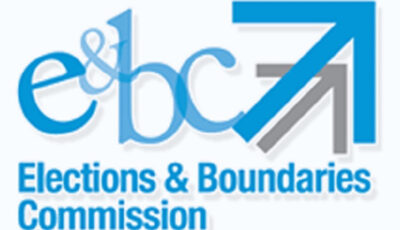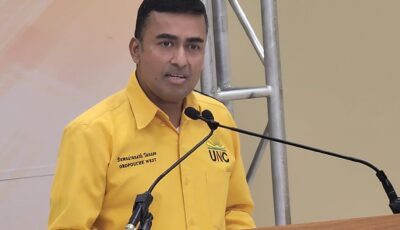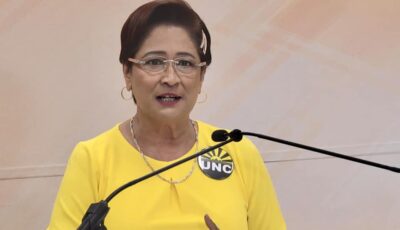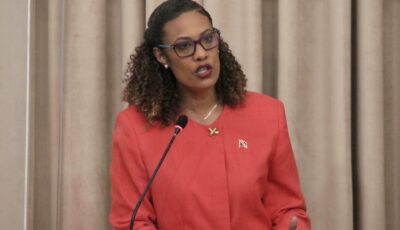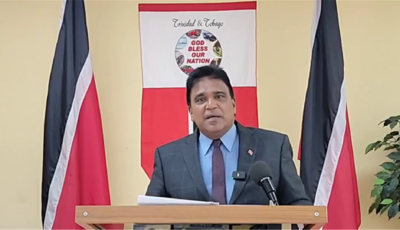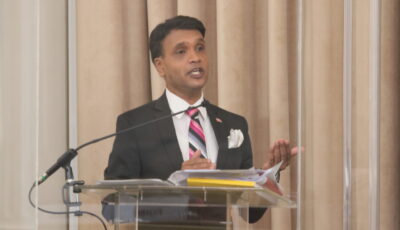UNC objects to the Debate of EBC Order on Budget Day
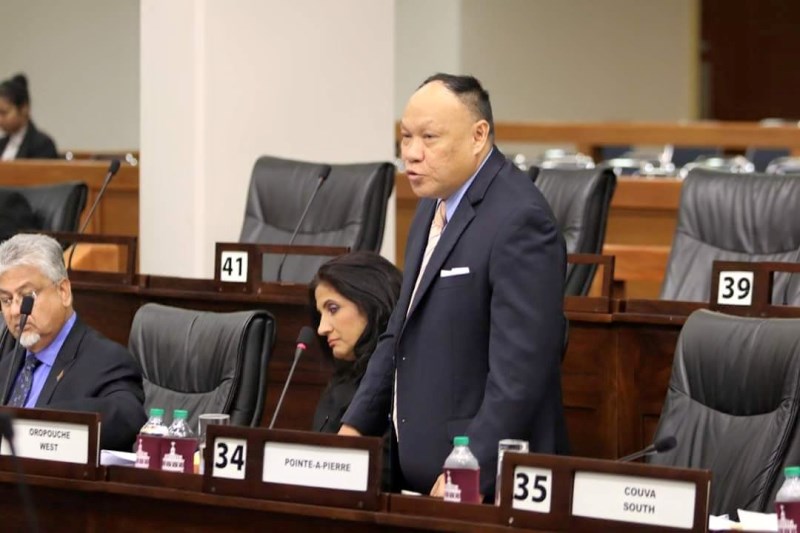
UNC Chairman David Lee
On behalf of the Opposition, I wish to bring a matter of significant concern to your attention as it relates to upcoming matters within the House of Representatives. At 8:38 am on Friday 4th October 2019, I received a call from the Leader of Government Business, Honourable Camille Robinson-Regis, indicating that the Government would be submitting a Supplemental Order Paper for the sitting on Monday 7th October 2019 containing a motion to approve the Draft Elections and Boundaries Commission (Local Government and Tobago House of Assembly) Order, 2019 and it was the Government’s intention to debate this Order after the Budget presentation on the said Monday. Thereafter at 12:04pm on the said Friday I received from Parliament a Supplemental Order Paper for the sitting of the House of Representatives on Monday 7th October 2019 containing a motion to approve the said EBC Order.
For the first time in its history, on the same day that the budget is presented, the Parliament is being asked to consider a matter which is unrelated to the national budget. As stated before, it was only on Friday October 4, 2019 that the Opposition was given notice that the Draft of the Elections and Boundaries Commission (Local Government and Tobago House of Assembly) Order, 2019 would be debated on Monday October 7, 2019, a date previously announced as Budget Day on Monday September 9, 2019. This Order was laid in the House of Representatives on Friday April 5, 2019 and the corresponding motion was also placed on the Order Paper.
It is well established and settled practice that routine business gives way to the Parliament’s consideration of the budget. Standing Order 82(3) of the House of Representatives provides for three (3) clear days between the presentation of the budget and the commencement of the debate on the Budget. Members of the Opposition only receive the numerous complex budget documents subsequent to the presentation of same by the Minister of Finance. As such, the days immediately following the budget presentation constitute an invaluable time period for assessment and public consultation with various stakeholders.
In essence, it has been the established practice of our Parliament that, after the proceedings in accordance with Standing Order 81 (4) have taken place, the House is adjourned to the date of resumption as named by the Minister of Finance. Such practice has never been deviated from, by any Government. Research in other Jurisdictions have revealed that this principle and practice has also been upheld within various Commonwealth and Caricom Parliaments.
In the Parliament of Guyana, the Standing Orders of the National Assembly (S.O.71) state:
“71. (1) The Estimates of Revenues and Expenditure for a financial year shall be laid before the Assembly by a Minister before or within ninety days after the commencement of that year. At the Sitting at which the Estimates are presented to the Assembly or at any subsequent Sitting, a Minister, after signifying the recommendation or the consent of the Cabinet may, without notice, move a motion for the approval of the Estimates of Expenditure. Such motion shall be the occasion for the Minister to make the Annual Financial Statement or Budget Speech.
(2) After the motion has been proposed the debate thereon shall be adjourned for not less than two days after which five further days shall be allotted for the debate on the motion. The debate, when resumed, shall be confined to the financial and economic state of the country and the general principles of Government policy and administration as indicated by the Budget Speech and the Estimates.”
It is important to note that the Clerk of the Parliament has confirmed that the Parliament of Guyana also has this established practice in which the Legislative Assembly is adjourned immediately after the adjournment of the debate, once the Motion has been proposed. The Parliament has confirmed that this practice has never been deviated from in its history.
In the Standing Orders of the Parliament of Barbados, Standing Order 63 of the House of Assembly invariably states:
“63. (Presentation and Second Reading of Appropriation Bills with or without budgetary proposals)
5. The motion for the second reading of the Appropriation Bill shall be the occasion for the Minister responsible for Finance to present, after Notice, the Budget; budgetary proposals on the financial and economic state of Barbados and the general principles of economic policy and administration as indicated by the Appropriation Bill and the Estimates.
6. In the event that the Minister of Finance presents a Budget, the debate shall, on the conclusion of that speech, continue on the following day and for a further day, and such debate shall be confined to the financial and economic state of Barbados and the general principles of government policy and administration as indicated by the Appropriation Bill and the Estimates.”
Notwithstanding the shorter suspension, the Opposition has been informed by the Clerk of Parliament of Barbados, Mr. Pedro Eastmond that the established practice of adjourning the House of Assembly immediately after the conclusion of the Budget Speech, taking no other business into consideration, has never been deviated from.
Further reference is made to the Parliament of India (Lok Sabha) where similar to the established practice of the Parliaments of Guyana, Barbados and Trinidad & Tobago, the Procedure in the Lok Sabha is to adjourn the House immediately after the Budget is presented. This is clearly stated on page 702 of the Practice and Procedure of Parliament (5th Ed.),
“Immediately after the presentation of the General Budget, the Minister of Finance introduces in the Lok Sabha the Finance Bill to give effect to the financial proposals of the Government for the following financial year, and thereafter the House rises for the day.” (Chapter XXIX – Procedure in Financial Matters)
While the Standing Orders of Trinidad and Tobago’s Parliament do not expressly forbid any other business to be taken, or mandate that the House adjourn immediately following the presentation of the Budget as is the case with India, resort must be had to the established practice of our Legislature.
It can be inferred that the introduction of any matter other than the Appropriation Bill during that same sitting constitutes a procedural irregularity that is ad variant to the ESTABLISHED PRACTICE of the Parliament of Trinidad and Tobago.
The scheduled timing of consideration of the said Order therefore impinges on the Opposition’s capacity to afford requisite attention to the crucial policy instrument that is the national budget.
It must be further noted that the EBC report was submitted by the Elections and Boundaries Commission to then Minister of Rural Development and Local Government, Senator the Hon. Kazim Hosein on 12th June 2017. This report was only laid in the House of Representatives on April 5th 2019, almost two years later.
It is significantly abhorrent that the Government has delayed this report for over 2 years and even worse, after laying it in our nation’s Parliament, have delayed its debate a further seven (7) months. It must be noted that there were twenty one (21) sittings of the House of Representatives inclusive of an Extraordinary Sitting in July since this Report was laid on 5th April 2019 which could have been utilized for this debate. As a matter of fact, there was sufficient time on the resumption of Parliament in September to undertake this debate given that three sittings were held and would have allowed comprehensive discussion on this critical issue.
The actions of the Government to rush through this debate on the same day as an important event such as the reading of our national budget is totally unacceptable. The Opposition hereby registers its condemnation of this move by government, whilst remaining open to further discussion and consultation with government on the way forward.


